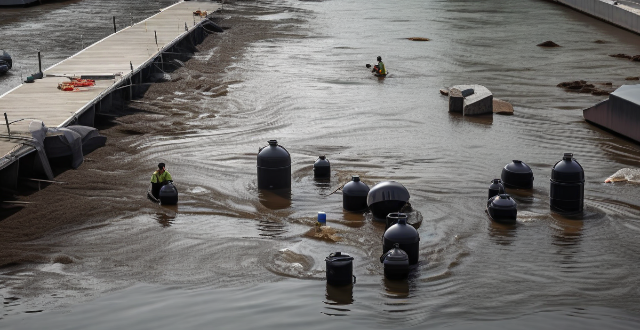Ensuring equitable access to water resources for all communities requires a multi-faceted approach, including investment in infrastructure, promotion of sustainable water management practices, implementation of policies and regulations, collaboration with local communities, and monitoring progress.

Ensuring Equitable Access to Water Resources for All Communities
Water is a fundamental human right and an essential resource for sustaining life, but unfortunately, not all communities have equal access to it. In this article, we will discuss some strategies that can help ensure equitable access to water resources for all communities.
1. Invest in Infrastructure
One of the most effective ways to ensure equitable access to water resources is by investing in infrastructure. This includes building and maintaining water treatment plants, pipelines, and distribution systems that can deliver clean and safe water to all communities. By investing in infrastructure, we can reduce the gap between urban and rural areas in terms of water accessibility.
2. Promote Sustainable Water Management Practices
Another strategy to ensure equitable access to water resources is by promoting sustainable water management practices. This involves using water efficiently, reducing waste, and protecting water sources from pollution and overuse. Some examples of sustainable water management practices include:
- Rainwater harvesting
- Greywater recycling
- Drip irrigation
- Water-efficient appliances and fixtures
By adopting these practices, we can reduce the overall demand for water and ensure that there is enough water available for all communities.
3. Implement Policies and Regulations
Governments play a crucial role in ensuring equitable access to water resources. They should implement policies and regulations that promote fair allocation of water resources among different communities. This may include:
- Setting water pricing policies that are affordable for all communities
- Providing subsidies or financial assistance to low-income households for water bills
- Enforcing strict penalties for illegal water usage or pollution activities
- Promoting public awareness campaigns about the importance of water conservation and protection
4. Collaborate with Local Communities
Collaborating with local communities is another important strategy to ensure equitable access to water resources. Governments and organizations should work closely with community leaders and members to understand their specific needs and challenges related to water accessibility. By involving local communities in decision-making processes, we can develop more effective solutions that address their unique circumstances and priorities.
5. Monitor and Evaluate Progress
Finally, monitoring and evaluating progress is essential to ensure equitable access to water resources. Governments and organizations should regularly assess the effectiveness of their strategies and programs aimed at improving water accessibility. This may involve collecting data on water usage patterns, conducting surveys or focus group discussions with community members, and analyzing feedback from stakeholders. Based on this information, they can identify areas for improvement and make necessary adjustments to their approaches.
In conclusion, ensuring equitable access to water resources requires a multifaceted approach that involves investing in infrastructure, promoting sustainable water management practices, implementing policies and regulations, collaborating with local communities, and monitoring progress. By adopting these strategies, we can create a more equitable world where every individual has access to clean and safe water.